Thursday, August 25, 2022, 12 pm EDT (Washington, D.C.), 6 pm CEST (Poland)
Polish lawyer abroad. How to practice law outside Poland?
This webinar aims at discussing varied careers that a Polish lawyer may choose to become a “foreign” lawyer. It may focus on why it is challenging and rewarding to be such a “foreign” lawyers following the Polish legal education path. The speakers will present varied professional routes that one may take, e.g., being involved in a Polish or foreign law firm, seated (or having its branch) in Poland or abroad, being admitted to the Polish or foreign bar and eventually representing Polish or foreign clients.
Michał Bobrzyński (LL.M. Harvard 2009), Greenberg Traurig, Warsaw
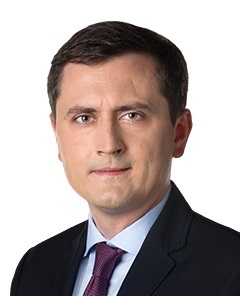 Michal Bobrzyński advises financial institutions on regulatory and transactional issues, as well as domestic and international companies on corporate matters, bankruptcy & restructuring, M&A and private equity transactions. He was a doctoral student at European Doctoral College, University of Heidelberg, and a coordinator of the CUA-JU American Law Program (2010-2015). Admitted to the bar in Poland (2012) and state of New York (2010).
Michal Bobrzyński advises financial institutions on regulatory and transactional issues, as well as domestic and international companies on corporate matters, bankruptcy & restructuring, M&A and private equity transactions. He was a doctoral student at European Doctoral College, University of Heidelberg, and a coordinator of the CUA-JU American Law Program (2010-2015). Admitted to the bar in Poland (2012) and state of New York (2010).
Dr Ola Horwath Campbell (CUA LL.M., CUA-UJ ALP 2005)
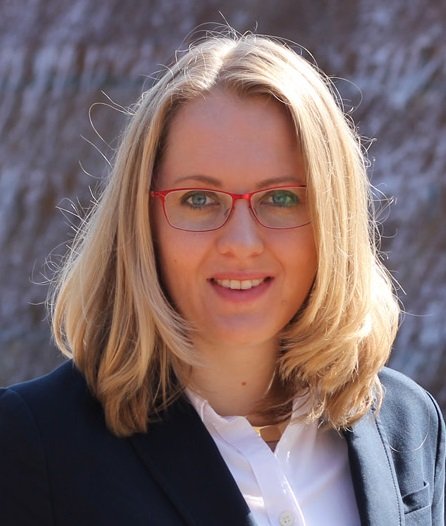 Ola practices in the Fort Worth Texas, in her solo legal practice. She advises small and mid-size companies with their transactional issues as well as commercial litigation. She also advises individual clients. She has master of law (2007) and Ph.D. (2012) from Jagiellonian University, CUA LL.M. (2010) and J.D. from Texas A&M School of Law (2015). She is admitted to the bar in Texas. When in Poland, she worked for KKG law firm (now Kubas, Kos, Gałkowski).
Ola practices in the Fort Worth Texas, in her solo legal practice. She advises small and mid-size companies with their transactional issues as well as commercial litigation. She also advises individual clients. She has master of law (2007) and Ph.D. (2012) from Jagiellonian University, CUA LL.M. (2010) and J.D. from Texas A&M School of Law (2015). She is admitted to the bar in Texas. When in Poland, she worked for KKG law firm (now Kubas, Kos, Gałkowski).
Dr hab. Justyna Regan (Balcarczyk) (CUA LL.M. 2005, CUA-UJ ALP), Miller Canfield, Chicago, Illinois
 Justyna Regan practices in the Chicago office of Miller Canfield, specializing in European, US, and multinational business law, data privacy, intellectual property with particular expertise in software licensing, and cross-border defamation. She has master of law, Ph.D., and habilitation degrees from the University of Wrocław in Poland. She also received a Fulbright Advanced Research Award for study at Chicago Kent College of Law and was a Visiting Fellow at the Max Planck Institute in Hamburg, Germany. She is the Chair of the Chicago Bar Association Cyber Law and Data Privacy Committee. She is admitted to the bar in Illinois and Poland. When in Poland, she worked for Studnicki Pleszka Cwiakalski Górski (SPCG), a major Polish firm.
Justyna Regan practices in the Chicago office of Miller Canfield, specializing in European, US, and multinational business law, data privacy, intellectual property with particular expertise in software licensing, and cross-border defamation. She has master of law, Ph.D., and habilitation degrees from the University of Wrocław in Poland. She also received a Fulbright Advanced Research Award for study at Chicago Kent College of Law and was a Visiting Fellow at the Max Planck Institute in Hamburg, Germany. She is the Chair of the Chicago Bar Association Cyber Law and Data Privacy Committee. She is admitted to the bar in Illinois and Poland. When in Poland, she worked for Studnicki Pleszka Cwiakalski Górski (SPCG), a major Polish firm.
Wednesday, August 31, 2022, 12 pm EDT (Washington, D.C.), 6 pm CEST (Poland)
Guarantees for real estate transfer. Notary vs. real-estate lawyer profession in Polish and American law
The idea of this webinar is to discuss varied possibilities to secure client’s as well as public interests within real estate transfer that exist in American and Polish legal orders. The real-estate lawyer profession (as primarily a representative of the party) will be compared with the notary profession (as primarily a impartial representative of the state), and both of those will be taken into consideration for both American and Polish (or, more generally, continental European perspective). Also, possible interference between such systems will be discussed (e.g. perspectives for transfers of Polish real estate that take place in America), and possible changes within the systems based on another system’s model.
Katarzyna Celewicz (CUA LL.M. 2020, CUA-UJ ALP 2019), Kraków Chamber of Notaries
 A fully qualified notary in Poland since 2013, admitted to the Kraków Chamber of Notaries. Ms. Celewicz is CUA-LL.M. 2020 graduate, a participant programme in Washington, D.C. (2019), intern in the Office of Administrative Hearings. In 2020 Ms. Celewicz took the Legal Drafting: Contracts (Summer 2020) course at CUA Columbus School of Law. She received her law degree from the Jagiellonian University in Krakow, Poland in 2006. After graduation, Ms. Celewicz took apprenticeship and notary training (2007- 2010) organized by Kraków Chamber of Notaries and subsequently worked as a notary substitute.
A fully qualified notary in Poland since 2013, admitted to the Kraków Chamber of Notaries. Ms. Celewicz is CUA-LL.M. 2020 graduate, a participant programme in Washington, D.C. (2019), intern in the Office of Administrative Hearings. In 2020 Ms. Celewicz took the Legal Drafting: Contracts (Summer 2020) course at CUA Columbus School of Law. She received her law degree from the Jagiellonian University in Krakow, Poland in 2006. After graduation, Ms. Celewicz took apprenticeship and notary training (2007- 2010) organized by Kraków Chamber of Notaries and subsequently worked as a notary substitute.
Arthur Fuccillo (CUA J.D. 1978), Lerner Enterprises
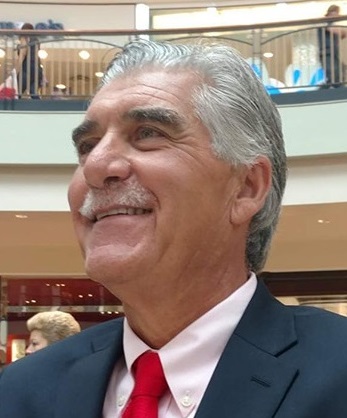 Executive Vice President of Lerner Enterprises and Lerner Corporation. He joined Lerner in 1981. For over three decades he has been involved in all facets of office, hotel, residential, stadium and retail planning, zoning and development with Lerner. He is active in the International Council of Shopping Centers (ICSC) and has lectured for ICSC, Urban Land Institute and on various college campuses on real estate.
Executive Vice President of Lerner Enterprises and Lerner Corporation. He joined Lerner in 1981. For over three decades he has been involved in all facets of office, hotel, residential, stadium and retail planning, zoning and development with Lerner. He is active in the International Council of Shopping Centers (ICSC) and has lectured for ICSC, Urban Land Institute and on various college campuses on real estate.
Krzysztof Maj, Council of Kraków Chamber of Notaries
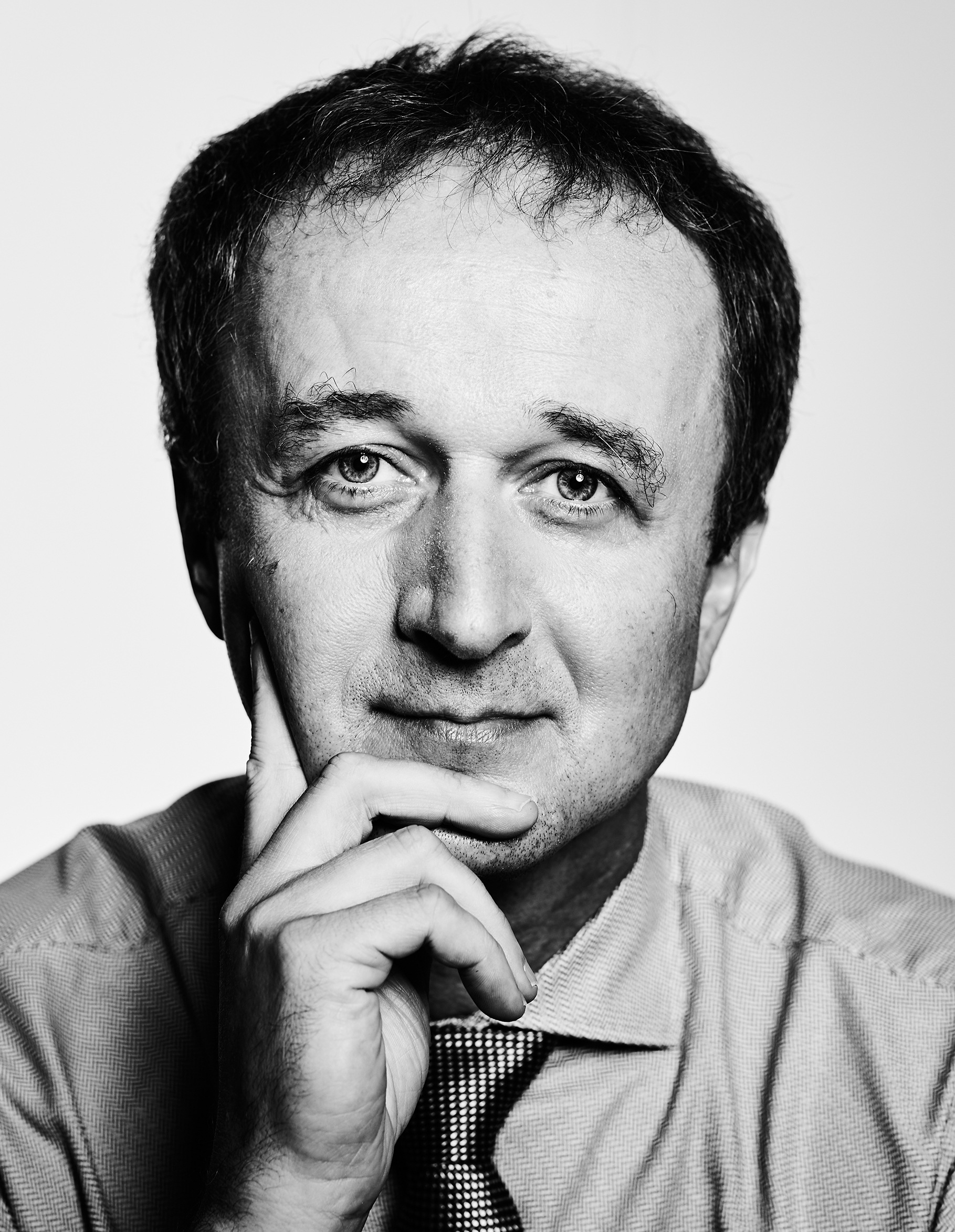 Notary in Kraków from 2000. President of the Council of the Kraków Chamber of Notaries (2012-2018). Member of the Council and Treasurer of the Kraków CoN (2018-). The creator, co-founder and chief editor of the Kraków CoN – Krakowski Przegląd Notarialny. Author of publications on developer law, mortgage (including the disposition of the emptied mortgage place), limitation of real property exchange in particular in law on creation of the agricultural organization as well as statutory preemption right. Lecturer for notaries, notary candidates and judges.
Notary in Kraków from 2000. President of the Council of the Kraków Chamber of Notaries (2012-2018). Member of the Council and Treasurer of the Kraków CoN (2018-). The creator, co-founder and chief editor of the Kraków CoN – Krakowski Przegląd Notarialny. Author of publications on developer law, mortgage (including the disposition of the emptied mortgage place), limitation of real property exchange in particular in law on creation of the agricultural organization as well as statutory preemption right. Lecturer for notaries, notary candidates and judges.
Thursday, September 8, 2022, 12 pm EDT (Washington, D.C.), 6 pm CEST (Poland)
Negotiation & mediation lawyer. American origin of ADR in Poland?
This webinar is aimed at discussing various perspectives of American legal practice in the ADR area that could be (or already are) used in the Polish legal practice. It could develop on how (and why) the ADR gained success in the US and how (and why) it could develop in Poland, too. Both theoretical and practical approaches to the ADR could be taken.
Dr Michał Araszkiewicz (CUA-UJ ALP 2004), Jagiellonian University in Kraków, Araszkiewicz Cichoń Araszkiewicz
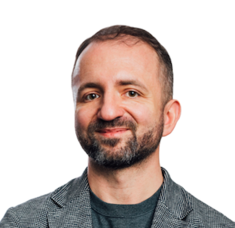 An assistant professor (adiunkt) in the Department of Legal Theory at the Jagiellonian University in Kraków and holds a PhD in legal theory. He is also a legal advisor, partner in Araszkiewicz Cichoń Araszkiewicz Law Firm (acrlegal.pl). Michał Araszkiewicz has published extensively in the field of legal theory and in the area of AI and Law. He specializes in theories of legal reasoning and argumentation, legal interpretation, case-based reasoning as well as in normative aspects of Artificial Intelligence, including the right to explanation. He is currently a member of the Executive Committee of the International Association for Artificial Intelligence and Law (IAAIL) and of the Steering Committee of JURIX. He served as the President of the ARGDIAP association (argdiap.pl) – a NGO focused on the problems of argumentation, dialogue and persuasion. He has co-organized numerous scientific events including the JURIX 2014 (Conference Chair) and four consecutive editions of XAILA – The EXplainable and Responsible AI in Law workshops at JURIXes 2018-2020 and ICAIL2021. In legal practice he specializes in the field of legal regulation of AI as well as in Intellectual Property, Data Protection and broadly understood Protection of Information.
An assistant professor (adiunkt) in the Department of Legal Theory at the Jagiellonian University in Kraków and holds a PhD in legal theory. He is also a legal advisor, partner in Araszkiewicz Cichoń Araszkiewicz Law Firm (acrlegal.pl). Michał Araszkiewicz has published extensively in the field of legal theory and in the area of AI and Law. He specializes in theories of legal reasoning and argumentation, legal interpretation, case-based reasoning as well as in normative aspects of Artificial Intelligence, including the right to explanation. He is currently a member of the Executive Committee of the International Association for Artificial Intelligence and Law (IAAIL) and of the Steering Committee of JURIX. He served as the President of the ARGDIAP association (argdiap.pl) – a NGO focused on the problems of argumentation, dialogue and persuasion. He has co-organized numerous scientific events including the JURIX 2014 (Conference Chair) and four consecutive editions of XAILA – The EXplainable and Responsible AI in Law workshops at JURIXes 2018-2020 and ICAIL2021. In legal practice he specializes in the field of legal regulation of AI as well as in Intellectual Property, Data Protection and broadly understood Protection of Information.
Jennifer Gartlan (CUA JD), District of Columbia Court of Appeals
 Jennifer M. Gartlan is the Mediation Program Coordinator for the District of Columbia Court of Appeals (DCCA). She is the Co-Chair of the ABA Dispute Resolution Section Court Committee and serves as an appointed member of the ABA Dispute Resolution Section’s Committee for Committee Development and Oversight. Ms. Gartlan is also an adjunct professor at the Catholic University Columbus School of Law. Ms. Gartlan previously served as the Deputy Director of the Office of Consumer Affairs & Dispute Resolution Services for the Federal Maritime Commission, which offered mediation, facilitation, the use of ombuds, and arbitration to resolve international shipping disputes. She also served as that organization’s Counsel to the Managing Director. Ms. Gartlan also previously practiced at Thompson Hine LLP, served as a trial attorney with the Federal Railroad Administration, and began her career as an Honors Attorney with the US Department of Transportation. Ms. Gartlan previously chaired the Interagency ADR Working Group Committee on Collaborative and Facilitative Processes (CFPC). She also served as the Chair of the Section on Administrative and Enforcement Regulatory Processes. Ms. Gartlan received her BA, magma cum laude and JD, cum laude, from The Catholic University of America. She received an LLM with distinction from Georgetown Law Center. She also studied music at the Juilliard School.
Jennifer M. Gartlan is the Mediation Program Coordinator for the District of Columbia Court of Appeals (DCCA). She is the Co-Chair of the ABA Dispute Resolution Section Court Committee and serves as an appointed member of the ABA Dispute Resolution Section’s Committee for Committee Development and Oversight. Ms. Gartlan is also an adjunct professor at the Catholic University Columbus School of Law. Ms. Gartlan previously served as the Deputy Director of the Office of Consumer Affairs & Dispute Resolution Services for the Federal Maritime Commission, which offered mediation, facilitation, the use of ombuds, and arbitration to resolve international shipping disputes. She also served as that organization’s Counsel to the Managing Director. Ms. Gartlan also previously practiced at Thompson Hine LLP, served as a trial attorney with the Federal Railroad Administration, and began her career as an Honors Attorney with the US Department of Transportation. Ms. Gartlan previously chaired the Interagency ADR Working Group Committee on Collaborative and Facilitative Processes (CFPC). She also served as the Chair of the Section on Administrative and Enforcement Regulatory Processes. Ms. Gartlan received her BA, magma cum laude and JD, cum laude, from The Catholic University of America. She received an LLM with distinction from Georgetown Law Center. She also studied music at the Juilliard School.
Joanna Wsołek (CUA LL.M., CUA-UJ ALP 2002)
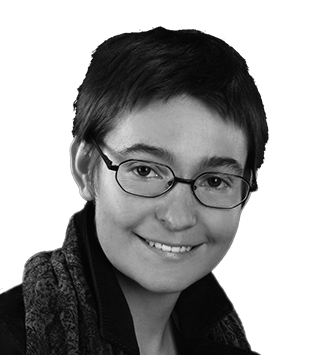 Polish advocate (Kraków Bar) running own law firm (from 2013) and mediator (from 2014), graduate of legal studies at the Jagiellonian University in Kraków, LL.M. studies in Washington D.C. (The Catholic University of America), School of French Law (in cooperation with the University of Orlean), School of German Law (in cooperation with the University of Heidelberg
Polish advocate (Kraków Bar) running own law firm (from 2013) and mediator (from 2014), graduate of legal studies at the Jagiellonian University in Kraków, LL.M. studies in Washington D.C. (The Catholic University of America), School of French Law (in cooperation with the University of Orlean), School of German Law (in cooperation with the University of Heidelberg
Thursday, September 15, 2022, 12 pm EDT (Washington, D.C.), 6 pm CEST (Poland)
Legal translation. Translation of legal concepts or legal terms?
The idea of this webinar is to discuss the difficulties and challenges of the legal translation, especially between American and Polish. It could convey different examples on how legal translation serves clients, courts, other lawyers, and to what extent speaking English is important to a Polish lawyer who may be more or less involved in the international legal exchange. Also, the difference in literal translation of a legal term from the other system versus presentation of an equivalent legal concept should be discussed. Finally, the considerations that should be taken into account in deciding whether and how to advise on foreign law or give advice in a foreign language could be given.
Susanna Fischer (B.A. University of Oxford, LL.M. University of Virginia), Columbus School of Law, The Catholic University of America
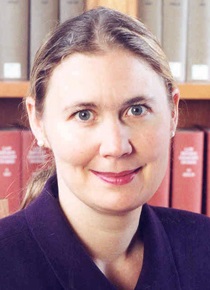 Associate Professor of Law, Director of International Human Rights Summer Law School Program in Rome. Her primary areas of practice and her main research interests are copyright law, art law, media law, cyberlaw, and constitutional law, from a comparative law perspective. She practiced for five years as a barrister in London, England, at 5 Raymond Buildings (currently headed by Desmond Browne QC and Matthew Nicklin QC). She also worked part-time as a Night Lawyer providing pre-publication legal advice for News International plc, the publishers of The Times, The Sunday Times, and the Sun. She later spent three years practicing intellectual property law at two New York City law firms, Skadden, Arps, Slate, Meagher & Flom LLP and Paul, Hastings, Janofsky & Walker LLP. Professor Fischer joined the faculty of Columbus School of Law in 1999, where she teaches or has taught copyright law, art law, entertainment law, introduction to intellectual property law, international intellectual property law, constitutional law, comparative law, comparative constitutional law, and civil procedure. She served as the native English language consultant for a translation of the Polish Civil Code into English, published by Wolters Kluwer Polska in 2012.
Associate Professor of Law, Director of International Human Rights Summer Law School Program in Rome. Her primary areas of practice and her main research interests are copyright law, art law, media law, cyberlaw, and constitutional law, from a comparative law perspective. She practiced for five years as a barrister in London, England, at 5 Raymond Buildings (currently headed by Desmond Browne QC and Matthew Nicklin QC). She also worked part-time as a Night Lawyer providing pre-publication legal advice for News International plc, the publishers of The Times, The Sunday Times, and the Sun. She later spent three years practicing intellectual property law at two New York City law firms, Skadden, Arps, Slate, Meagher & Flom LLP and Paul, Hastings, Janofsky & Walker LLP. Professor Fischer joined the faculty of Columbus School of Law in 1999, where she teaches or has taught copyright law, art law, entertainment law, introduction to intellectual property law, international intellectual property law, constitutional law, comparative law, comparative constitutional law, and civil procedure. She served as the native English language consultant for a translation of the Polish Civil Code into English, published by Wolters Kluwer Polska in 2012.
Wojciech Jarosiński (CUA LL.M. 2011, CUA-UJ ALP 2010), Maruta, Warsaw
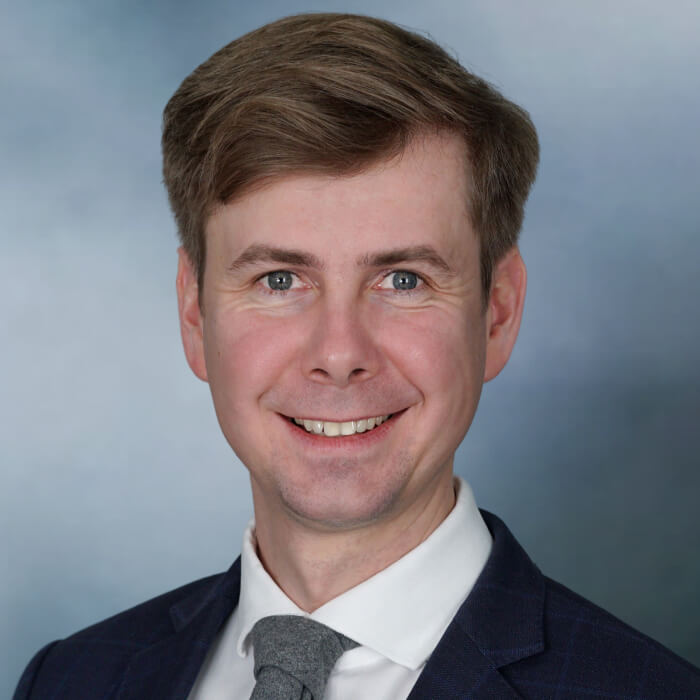 Mr. Jarosiński is a partner at Maruta law firm and head of the law firm’s dispute resolution practice. He has led or supervised more than three hundred technology litigations, the aggregated value of which exceeds two billion USD, and advised on execution of technology projects of the same magnitude. Maruta law firm is the highest-ranking Polish law firm specializing in new technologies (Legal500 - Tier 1, Chambers - Band 1, Rzeczpospolita Daily - the leader). In addition, Mr. Jarosiński was named as the top dispute resolution lawyer in Poland by Rzeczpospolita Daily four times (2018-2021). Rzeczpospolita Daily also ranked Maruta’s dispute resolution practice in the Top Five of dispute resolution practices in 2017, 2018, and 2019 and the leading dispute resolution team in 2020 and 2021. In fall 2019, Mr. Jarosiński was featured in the Who's Who of Foreign Attorneys section of the US magazine, National Jurist magazine. Mr. Jarosiński received his master of laws degree from the Jagiellonian University in 2010. He is a member of CUA Law School’s Board of Visitors. In addition to law practice, he created and managed Vertical Shot Expeditions, which offered photography workshops in remote locations from the Arctic to the Antarctic.
Mr. Jarosiński is a partner at Maruta law firm and head of the law firm’s dispute resolution practice. He has led or supervised more than three hundred technology litigations, the aggregated value of which exceeds two billion USD, and advised on execution of technology projects of the same magnitude. Maruta law firm is the highest-ranking Polish law firm specializing in new technologies (Legal500 - Tier 1, Chambers - Band 1, Rzeczpospolita Daily - the leader). In addition, Mr. Jarosiński was named as the top dispute resolution lawyer in Poland by Rzeczpospolita Daily four times (2018-2021). Rzeczpospolita Daily also ranked Maruta’s dispute resolution practice in the Top Five of dispute resolution practices in 2017, 2018, and 2019 and the leading dispute resolution team in 2020 and 2021. In fall 2019, Mr. Jarosiński was featured in the Who's Who of Foreign Attorneys section of the US magazine, National Jurist magazine. Mr. Jarosiński received his master of laws degree from the Jagiellonian University in 2010. He is a member of CUA Law School’s Board of Visitors. In addition to law practice, he created and managed Vertical Shot Expeditions, which offered photography workshops in remote locations from the Arctic to the Antarctic.
Piotr Musiela (CUA-UJ ALP 2017), Sworn Translator
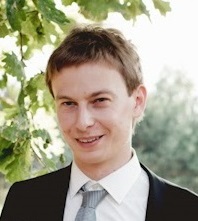 Mr Musiela graduated from the Jagiellonian University with an MA in archaeology and the Tischner European University with a BA in applied linguistics. He has been working as a freelance translator on a full-time basis since 2011. In 2016, he qualified as a licensed (sworn) translator, and a year later joined Corporate Services, a Kraków-based boutique translation company serving the Polish financial market since the early 2000s. Apart from translating on a regular basis, at CSX he has been responsible for running the company’s day-to-day operations and developing its machine translation capabilities. Mr Musiela is also an ALP graduate and was a participant in the 2019 CUA LLM programme in Washington, D.C.
Mr Musiela graduated from the Jagiellonian University with an MA in archaeology and the Tischner European University with a BA in applied linguistics. He has been working as a freelance translator on a full-time basis since 2011. In 2016, he qualified as a licensed (sworn) translator, and a year later joined Corporate Services, a Kraków-based boutique translation company serving the Polish financial market since the early 2000s. Apart from translating on a regular basis, at CSX he has been responsible for running the company’s day-to-day operations and developing its machine translation capabilities. Mr Musiela is also an ALP graduate and was a participant in the 2019 CUA LLM programme in Washington, D.C.
Thursday, September 22, 2022, 12 pm EDT (Washington, D.C.), 6 pm CEST (Poland)
In-house lawyer. American law in a company practice?
The idea of this webinar is to discuss the utility of American law and American legal practice when performing the profession of the in-house lawyer. In particular, it should be differentiated whether the company in which such an in-house lawyer works is based in America, cooperates with American companies, or maybe have no direct connections with the United States.
Anna Bluszcz-Balcerowska, BP Europe
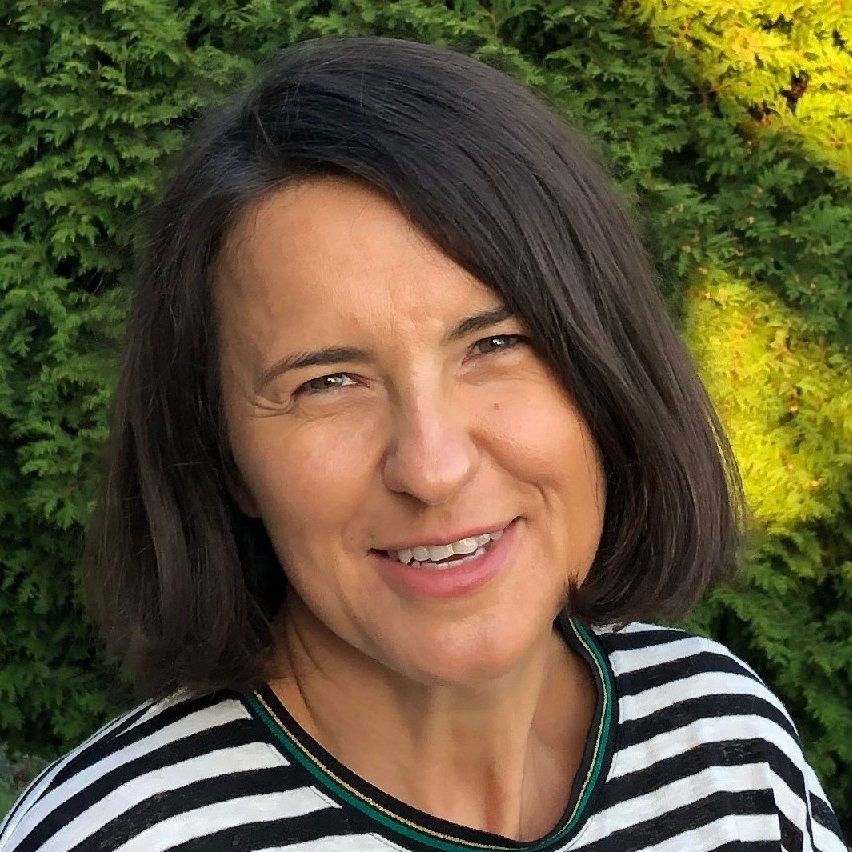 Anna Bluszcz-Balcerowska for many years is an in-house lawyer of BP Europe. Earlier worked as an in-house lawyer at Comarch, whereas her legal career began at the Jagiellonian University in Kraków legal clinic and later at Allen & Overy law firm. She is an attorney-at-law at the Kraków Bar Association. Anna graduated from Jagiellonian University in Kraków and attended the Internationa Business and Trade Summer Law Program. With a Tempus scholarship she joined the Catholic University of Leuven.
Anna Bluszcz-Balcerowska for many years is an in-house lawyer of BP Europe. Earlier worked as an in-house lawyer at Comarch, whereas her legal career began at the Jagiellonian University in Kraków legal clinic and later at Allen & Overy law firm. She is an attorney-at-law at the Kraków Bar Association. Anna graduated from Jagiellonian University in Kraków and attended the Internationa Business and Trade Summer Law Program. With a Tempus scholarship she joined the Catholic University of Leuven.
Bryan Webster, Meta
Dr Daniel Zatorski (CUA LL.M. 2011, CUA-UJ ALP 2009), Uniper
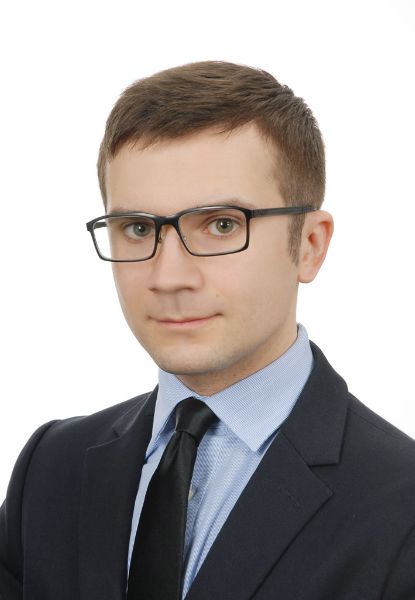 Daniel is a Senior Legal Counsel in the International Law & Global Training department at Uniper SE headquartered in Düsseldorf. In this role he supports the company's LNG trading and shippingoperations. Before joining Uniper he worked as a Legal Counsel in the automotive sector for the European headquarters of Hyundai in Frankfurt. Daniel holds a PhD from the Jagiellonian University, and LL.M. from the Catholic University of America, and a Graduate Diploma in Law from the University of Law in London. He is also a member of the Kraków Bar Association and is registered with the Düsseldorf Bar Association.
Daniel is a Senior Legal Counsel in the International Law & Global Training department at Uniper SE headquartered in Düsseldorf. In this role he supports the company's LNG trading and shippingoperations. Before joining Uniper he worked as a Legal Counsel in the automotive sector for the European headquarters of Hyundai in Frankfurt. Daniel holds a PhD from the Jagiellonian University, and LL.M. from the Catholic University of America, and a Graduate Diploma in Law from the University of Law in London. He is also a member of the Kraków Bar Association and is registered with the Düsseldorf Bar Association.
Tuesday, September 27, 2022, 12 pm EDT (Washington, D.C.), 6 pm CEST (Poland)
Law, public policy and politics. How law affects public policy and politics? How public policy and politics affect law?
The aim of this webinar is to discuss the interference between public policy (politics) and law. Every process of law-making demands policy choices, but its theoretical and practical background are of particular interest. Especially, the process of lobbying could be analysed. Also, the already developed legal instruments affect human behavior that later influences policy making – and they also could be discussed.
Tomasz Chmal (CUA-UJ IBTSLP 1997), Trzeciak Chmal, Warsaw
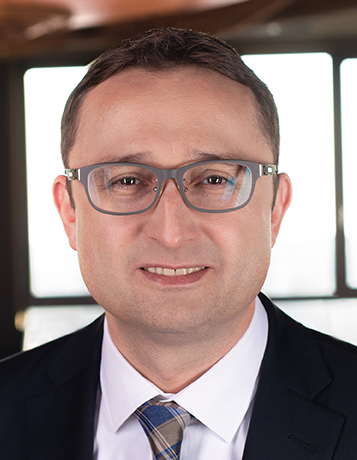 Mr. Chmal is an attorney-at-law and graduate of the Faculty of Law and Administration of Adam Mickiewicz University in Poznań as well as The Catholic University’s International and Trade Summer Law Program (CUA IBTSLP). Mr. Chmal completed post-graduate studies at the Warsaw School of Economics and the University of Economics in Poznań, pursued a PhD at the National Security Department of the Academy of War Arts, and was a Boeing Scholar in residence at CUA. Mr. Chmal is the former director of the Department of International and European Law at the General Prosecutor's Office of the Republic of Poland; a long-term partner in the international law firm White & Case, where he managed the energy and natural resources practice; ex-chairman of the Supervisory Board of the Polish Center for Technology Development in Wrocław; co-founder and first President of the Board of Business & Science Poland, a lobbying hub for the largest Polish companies in Brussels; and former board member of the Sobieski Institute. Mr. Chmal currently is a partner in and co-founder of Trzeciak|Chmal, a public affairs boutique firm supporting foreign investors in Poland. He has represented clients from the oil, gas, and electricity sectors before regulatory authorities and advised clients on energy strategies, litigation, mergers and acquisitions, and restructuring. Chambers Europe and Legal 500 EMEA have listed him among the best lawyers in the field of Energy & Natural Resources. Mr. Chmal cooperates with non-governmental organizations, including the School for Leaders; Society of Friends of the Museum of Modern Art; Divine Providence Center; Institute of Industrial Studies; Polish Humanitarian Action; and the Tertio Millennio Institute. He is interested in contemporary art and mountain climbing. He recently published a book on collecting contemporary art.
Mr. Chmal is an attorney-at-law and graduate of the Faculty of Law and Administration of Adam Mickiewicz University in Poznań as well as The Catholic University’s International and Trade Summer Law Program (CUA IBTSLP). Mr. Chmal completed post-graduate studies at the Warsaw School of Economics and the University of Economics in Poznań, pursued a PhD at the National Security Department of the Academy of War Arts, and was a Boeing Scholar in residence at CUA. Mr. Chmal is the former director of the Department of International and European Law at the General Prosecutor's Office of the Republic of Poland; a long-term partner in the international law firm White & Case, where he managed the energy and natural resources practice; ex-chairman of the Supervisory Board of the Polish Center for Technology Development in Wrocław; co-founder and first President of the Board of Business & Science Poland, a lobbying hub for the largest Polish companies in Brussels; and former board member of the Sobieski Institute. Mr. Chmal currently is a partner in and co-founder of Trzeciak|Chmal, a public affairs boutique firm supporting foreign investors in Poland. He has represented clients from the oil, gas, and electricity sectors before regulatory authorities and advised clients on energy strategies, litigation, mergers and acquisitions, and restructuring. Chambers Europe and Legal 500 EMEA have listed him among the best lawyers in the field of Energy & Natural Resources. Mr. Chmal cooperates with non-governmental organizations, including the School for Leaders; Society of Friends of the Museum of Modern Art; Divine Providence Center; Institute of Industrial Studies; Polish Humanitarian Action; and the Tertio Millennio Institute. He is interested in contemporary art and mountain climbing. He recently published a book on collecting contemporary art.
Prof. Paweł Laidler, Jagiellonian University in Kraków
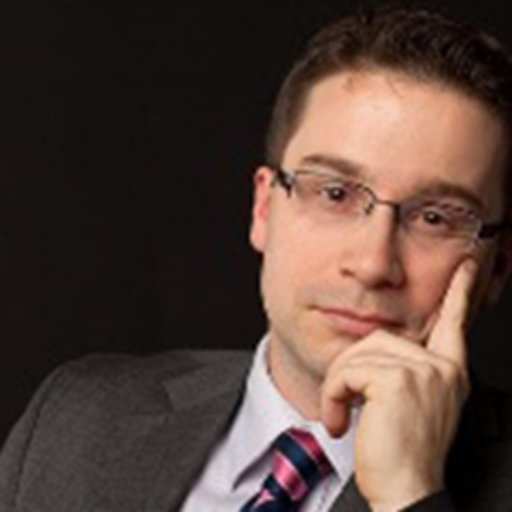 Dean of the Faculty of International and Political Studies, Jagiellonian University in Krakow Prof. Paweł Laidler holds a habilitation he defended with honors in political science at the Faculty of International and Political Studies of the Jagiellonian University (2012); a PhD in political science (Faculty of International and Political Studies, Jagiellonian University, 2003); and an M.A. in law (Faculty of Law and Administration, Jagiellonian University, 2000). He was a Fellow of the of Sasakawa Young Leaders’ Fellowship Fund (SYLFF, 2001, for a research visit to the Catholic University of America in Washington, D.C.) and was a Visiting Professor at the Kennedy Institute for North America Studies of the Free University of Berlin (2015). Prof. Laidler has conducted research and lectured in the United States, Germany, Great Britain, Ireland, Italy, Japan, and Australia. He is the recipient of the First Award for the Best Teaching at Jagiellonian University (2013) and an eight-time recipient of the Jagiellonian University Rector’s Awards for outstanding teaching and scientific results. His academic interests are U.S. constitutionalism, legal and judicial system; the conflict between law and politics; national security policy; human rights and civil rights.
Dean of the Faculty of International and Political Studies, Jagiellonian University in Krakow Prof. Paweł Laidler holds a habilitation he defended with honors in political science at the Faculty of International and Political Studies of the Jagiellonian University (2012); a PhD in political science (Faculty of International and Political Studies, Jagiellonian University, 2003); and an M.A. in law (Faculty of Law and Administration, Jagiellonian University, 2000). He was a Fellow of the of Sasakawa Young Leaders’ Fellowship Fund (SYLFF, 2001, for a research visit to the Catholic University of America in Washington, D.C.) and was a Visiting Professor at the Kennedy Institute for North America Studies of the Free University of Berlin (2015). Prof. Laidler has conducted research and lectured in the United States, Germany, Great Britain, Ireland, Italy, Japan, and Australia. He is the recipient of the First Award for the Best Teaching at Jagiellonian University (2013) and an eight-time recipient of the Jagiellonian University Rector’s Awards for outstanding teaching and scientific results. His academic interests are U.S. constitutionalism, legal and judicial system; the conflict between law and politics; national security policy; human rights and civil rights.
Grisella Martinez, Director of Legislative Affairs, Office of the Vice President of the United States (CUA J.D.)
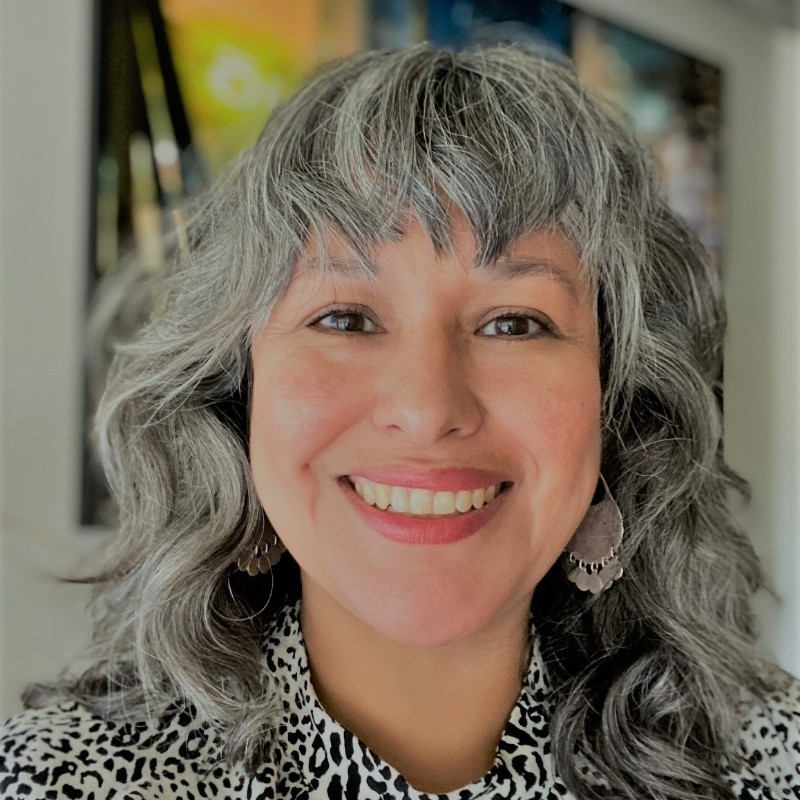 Grisella Martinez is currently a director of legislative affairs in the office of the Vice President of the US, previously worked with the House of Representatives (chief of staff), National Association of Broadcasters (vice presindent, government relations) and National Immigration Forum (director of policy & legislative affairs). JD from The Catholic University of America in Washington in Comparative and International Trade, LL.M. from American University in Washington in Administrative Law & Regulatory Policy, BA from James Madison University in English and Political Science.
Grisella Martinez is currently a director of legislative affairs in the office of the Vice President of the US, previously worked with the House of Representatives (chief of staff), National Association of Broadcasters (vice presindent, government relations) and National Immigration Forum (director of policy & legislative affairs). JD from The Catholic University of America in Washington in Comparative and International Trade, LL.M. from American University in Washington in Administrative Law & Regulatory Policy, BA from James Madison University in English and Political Science.
Wednesday, October 5, 2022, 12 pm EDT (Washington, D.C.), 6 pm CEST (Poland)
Big and small law firm. American legal practice patterns in Poland
This webinar is aimed at discussing varied opportunities and difficulties in varied models of running a law firm, being either small (boutique), or a big (corporation) one. The American models and good practices as well as American traditions and experience of running law firms for much longer than Polish ones could be analysed from the perspective of their direct or indirect influence onto Polish law firms or Polish branches of foreign law firms.
Roman Iwański, B2RLaw, Warszawa
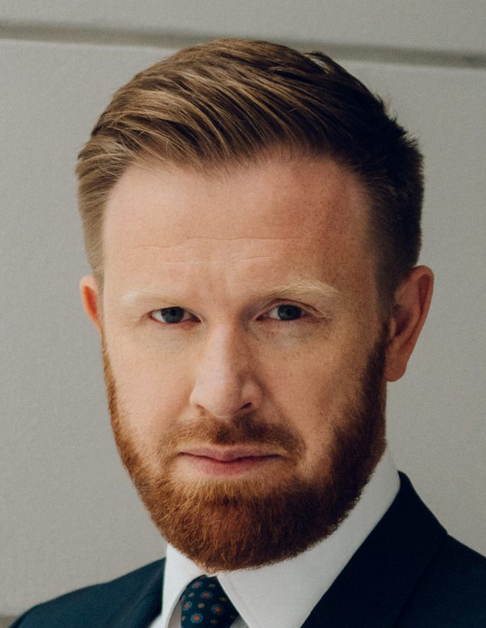 Roman leads the B2RLaw Commercial Law Practice and is also an expert in Dispute Resolution. Roman is an advocate at the District Bar Association in Warsaw. He has over 13 years of experience in providing commercial legal advice to companies, as well as representing them in litigation, arbitration and in settlement talks. He advised clients in the following sectors: management consulting, compliance, corporate, real estate and construction matters, insurance and reinsurance matters, labour law/employment matters, energy and renewable energy matters, IP and data protection matters, bankruptcy cases, among others. Roman advises clients both at a management level on strategic projects and in organizing day-to-day advice to companies. Additionally, Roman is regularly engaged in pro bono work. Roman has been recently recognized for his pro bono work by the Polish Ombudsman. He is a citizen of both Poland and Canada.
Roman leads the B2RLaw Commercial Law Practice and is also an expert in Dispute Resolution. Roman is an advocate at the District Bar Association in Warsaw. He has over 13 years of experience in providing commercial legal advice to companies, as well as representing them in litigation, arbitration and in settlement talks. He advised clients in the following sectors: management consulting, compliance, corporate, real estate and construction matters, insurance and reinsurance matters, labour law/employment matters, energy and renewable energy matters, IP and data protection matters, bankruptcy cases, among others. Roman advises clients both at a management level on strategic projects and in organizing day-to-day advice to companies. Additionally, Roman is regularly engaged in pro bono work. Roman has been recently recognized for his pro bono work by the Polish Ombudsman. He is a citizen of both Poland and Canada.
Stanley Woodward, Brand Woodward, Washington, D.C.
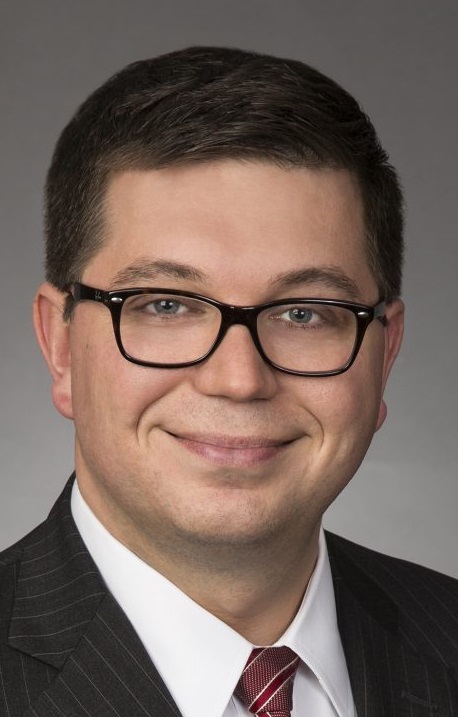 Stanley has a decade of experience counseling companies and individuals responding to government and internal investigations as well as complex civil litigation, including employment issues. Stanley’s experience includes the representation of domestic and international clients on issues related to global compliance, including matters arising under the Foreign Corrupt Practices Act and personal data protection laws, as well as other ethical and legal compliance matters. Stanley’s individual representations span a wide range of federal executive branch departments, commissions, and agencies, including the Office of the White House Counsel, the Departments of Justice (including the Special Counsel’s Office led by Robert Mueller), Defense, Commerce, and Interior. Stanley also has extensive experience representing companies in sensitive high-stakes employment litigation including employee duties of loyalty, breach of fiduciary duties, trade secret theft, and usurpation of corporate opportunities. For more than ten years Stanley worked for the Global AmLaw ranked law firm of Akin Gump Strauss Hauer & Feld LLP. Before which, Stanley served as a Law Clerk to the judge of the D.C. Court of Appeals, and judges of the D.C. Superior Court. In 2018, Stanley was awarded the D.C. Bar’s Pro Bono Attorney of the Year Award for our representation of tenants in the District facing eviction. Stanley’s pro bono experience also includes white collar representation, including most recently joining a team from Lawyers Without Borders in providing trial practice training to the Office of the Namibian Prosecutor General and its prosecutors. Stanley also serves as the President of the Alumni Council for the Catholic University of America’s Columbus School of Law.
Stanley has a decade of experience counseling companies and individuals responding to government and internal investigations as well as complex civil litigation, including employment issues. Stanley’s experience includes the representation of domestic and international clients on issues related to global compliance, including matters arising under the Foreign Corrupt Practices Act and personal data protection laws, as well as other ethical and legal compliance matters. Stanley’s individual representations span a wide range of federal executive branch departments, commissions, and agencies, including the Office of the White House Counsel, the Departments of Justice (including the Special Counsel’s Office led by Robert Mueller), Defense, Commerce, and Interior. Stanley also has extensive experience representing companies in sensitive high-stakes employment litigation including employee duties of loyalty, breach of fiduciary duties, trade secret theft, and usurpation of corporate opportunities. For more than ten years Stanley worked for the Global AmLaw ranked law firm of Akin Gump Strauss Hauer & Feld LLP. Before which, Stanley served as a Law Clerk to the judge of the D.C. Court of Appeals, and judges of the D.C. Superior Court. In 2018, Stanley was awarded the D.C. Bar’s Pro Bono Attorney of the Year Award for our representation of tenants in the District facing eviction. Stanley’s pro bono experience also includes white collar representation, including most recently joining a team from Lawyers Without Borders in providing trial practice training to the Office of the Namibian Prosecutor General and its prosecutors. Stanley also serves as the President of the Alumni Council for the Catholic University of America’s Columbus School of Law.
Dr Tomasz Zielenkiewicz (CUA LL.M. 2011), Domański, Zakrzewski, Palinka, Warszawa
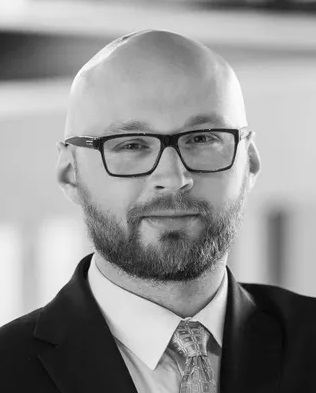 Specialises in administrative and civil law aspects of the functioning of regulated sectors, particularly the road and rail transport sector, having regard to the specifics of public transport. Has particular experience in advising in administrative proceedings (conducted by regulatory authorities), and administrative court and court cases involving the functioning of companies in the road and rail transport sector. His experience includes contract advice having regard to the specifics of the transport sector. He has participated in work on the restructuring of the biggest of the Polish rail operators. He has dealt with developing distribution structures and the functioning of online shops and services, and also state aid as regards rules on competition protection and combating unfair competition on regulated markets. His academic interests particularly include economic analyses of the law.
Specialises in administrative and civil law aspects of the functioning of regulated sectors, particularly the road and rail transport sector, having regard to the specifics of public transport. Has particular experience in advising in administrative proceedings (conducted by regulatory authorities), and administrative court and court cases involving the functioning of companies in the road and rail transport sector. His experience includes contract advice having regard to the specifics of the transport sector. He has participated in work on the restructuring of the biggest of the Polish rail operators. He has dealt with developing distribution structures and the functioning of online shops and services, and also state aid as regards rules on competition protection and combating unfair competition on regulated markets. His academic interests particularly include economic analyses of the law.


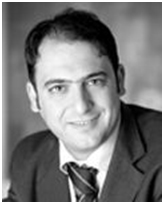 Vincenzo Senatore is a partner in the London office of Giambrone & Partners LLP. He heads the London corporate and commercial department as well as the firm’s international criminal law practice. In 2019, European Legal Awards ranked Giambrone & Partners as one of the top Merger and Acquisition firms, and Top Legal, the most prestigious Italian legal ranking, named Giambrone & Partners as the Italian Law Firm of the Year in 2018. Vincenzo is an Italian-licensed Attorney, a qualified Solicitor in England and Wales, and recently was admitted as Counsel before the International Criminal Court at The Hague. He is regularly retained in high-value commercial litigation and large international arbitration matters. His practice includes company law, debt recovery, corporate and general commercial agreements, and other business law matters. Mr. Senatore also represents international English-speaking clients in cross-border criminal matters in Italy. In 2015, he was a fellow at the Stanford University (CA) Center for Biomedical & Ethics, working on contentious issues arising from stem cell research related to biotechnological inventions. His work has been published in the prestigious journal NATURE Biotech. He is an editorial board member of the International Academy of Financial Consumers, located at the Sungkyunkwan University of Seoul (South Korea). He is a frequent conference presenter and media commentator on cross-border matters between the UK and Italy. Vincenzo received his law degree from the University of Naples, Federico II, (IT).
Vincenzo Senatore is a partner in the London office of Giambrone & Partners LLP. He heads the London corporate and commercial department as well as the firm’s international criminal law practice. In 2019, European Legal Awards ranked Giambrone & Partners as one of the top Merger and Acquisition firms, and Top Legal, the most prestigious Italian legal ranking, named Giambrone & Partners as the Italian Law Firm of the Year in 2018. Vincenzo is an Italian-licensed Attorney, a qualified Solicitor in England and Wales, and recently was admitted as Counsel before the International Criminal Court at The Hague. He is regularly retained in high-value commercial litigation and large international arbitration matters. His practice includes company law, debt recovery, corporate and general commercial agreements, and other business law matters. Mr. Senatore also represents international English-speaking clients in cross-border criminal matters in Italy. In 2015, he was a fellow at the Stanford University (CA) Center for Biomedical & Ethics, working on contentious issues arising from stem cell research related to biotechnological inventions. His work has been published in the prestigious journal NATURE Biotech. He is an editorial board member of the International Academy of Financial Consumers, located at the Sungkyunkwan University of Seoul (South Korea). He is a frequent conference presenter and media commentator on cross-border matters between the UK and Italy. Vincenzo received his law degree from the University of Naples, Federico II, (IT). 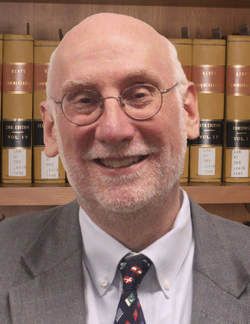 Professor Watson’s research interests focus on public international law, legal aspects of the Middle East peace process, and the history of American law. In addition to these areas, he has taught contacts, criminal law, constitutional law, international human rights law, comparative law, and comparative constitutional law. Prior to joining the faculty, Professor Watson was an attorney-advisor for the U.S. Department of State specializing in international criminal law and legal aspects of U.S. policy in the Middle East. He authored the Oxford University Press book, The Oslo Accords: International Law and the Israeli-Palestinian Peace Accords.
Professor Watson’s research interests focus on public international law, legal aspects of the Middle East peace process, and the history of American law. In addition to these areas, he has taught contacts, criminal law, constitutional law, international human rights law, comparative law, and comparative constitutional law. Prior to joining the faculty, Professor Watson was an attorney-advisor for the U.S. Department of State specializing in international criminal law and legal aspects of U.S. policy in the Middle East. He authored the Oxford University Press book, The Oslo Accords: International Law and the Israeli-Palestinian Peace Accords.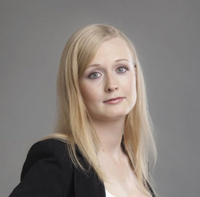 Katarzyna Stryjniak is a Legal and Policy Officer in the Directorate General for Research and Innovation of the European Commission, based in Brussels, Belgium. Her work focuses on the legal aspects of the European Union’s research and innovation programs. She also worked in the legal department of the Polish government agency National Center of Research and Development as well as at Domanski Zakrzewski Palinka in Warsaw, Poland, one of Poland’s largest law firms. Between 2012 and 2019 she was the JU-CUA LL.M. Program Coordinator. She received her law degree from the Jagiellonian University in Krakow, Poland in 2012 and joined the Warsaw bar in 2016.
Katarzyna Stryjniak is a Legal and Policy Officer in the Directorate General for Research and Innovation of the European Commission, based in Brussels, Belgium. Her work focuses on the legal aspects of the European Union’s research and innovation programs. She also worked in the legal department of the Polish government agency National Center of Research and Development as well as at Domanski Zakrzewski Palinka in Warsaw, Poland, one of Poland’s largest law firms. Between 2012 and 2019 she was the JU-CUA LL.M. Program Coordinator. She received her law degree from the Jagiellonian University in Krakow, Poland in 2012 and joined the Warsaw bar in 2016. 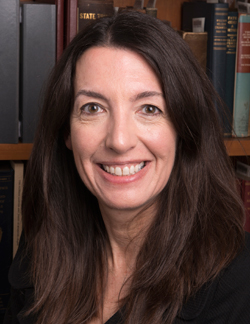 Professor Schooner’s writing focuses on challenges in regulating the financial services industry. She co-authored Global Bank Regulation: Principles and Policies. She teaches courses in regulating financial institutions, corporations, contracts, and commercial law. Prior to joining the faculty, she worked for the U.S. Securities and Exchange Commission, a bank holding company, and in private practice.
Professor Schooner’s writing focuses on challenges in regulating the financial services industry. She co-authored Global Bank Regulation: Principles and Policies. She teaches courses in regulating financial institutions, corporations, contracts, and commercial law. Prior to joining the faculty, she worked for the U.S. Securities and Exchange Commission, a bank holding company, and in private practice. 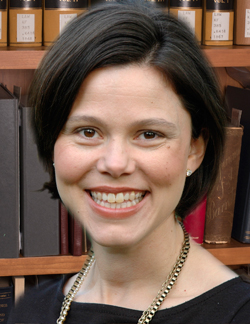 Professor Cara H. Drinan is a nationally recognized expert on the right to counsel, juvenile sentencing, and criminal justice reform. Drinan, who teaches criminal law, criminal procedure, and criminal justice reform, among other courses, also serves as the law school’s Director of Faculty Research. Her own research focuses on access to counsel, sentencing, and youth in the criminal justice system. Since 2017, when she published her first book on juvenile sentencing in America, The War on Kids: How American Juvenile Justice Lost Its Way (Oxford Univ. Press), she has been advocating nationwide for juvenile justice and sentencing reform.
Professor Cara H. Drinan is a nationally recognized expert on the right to counsel, juvenile sentencing, and criminal justice reform. Drinan, who teaches criminal law, criminal procedure, and criminal justice reform, among other courses, also serves as the law school’s Director of Faculty Research. Her own research focuses on access to counsel, sentencing, and youth in the criminal justice system. Since 2017, when she published her first book on juvenile sentencing in America, The War on Kids: How American Juvenile Justice Lost Its Way (Oxford Univ. Press), she has been advocating nationwide for juvenile justice and sentencing reform. 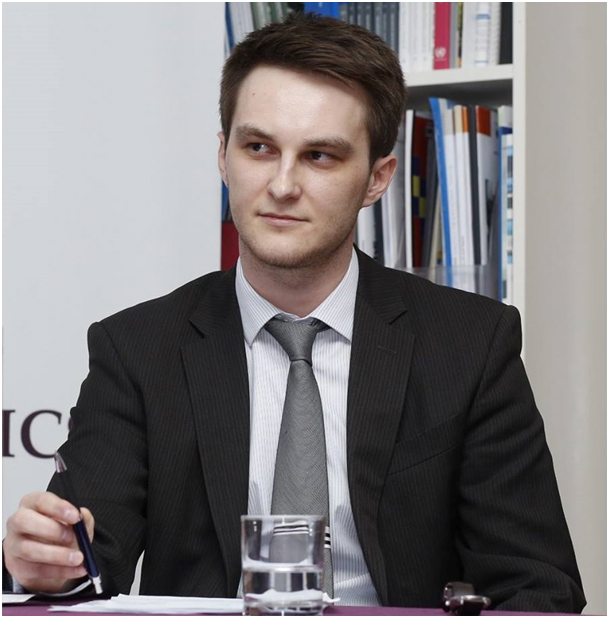 Gaspar Kot is a markets, products, and structuring lawyer for UBS, the Swiss investment bank and financial services company with worldwide offices including more than 5000 employees in Poland. Mr. Kot heads the Asset Management stream of the legal department in the UBS Krakow office. He also is the CUA-JU LL.M. Program coordinator in Poland. Mr. Kot received his law degree from Jagiellonian University and is a member of the attorneys-at-law bar. Currently, he is a PhD student at Jagiellonian University.
Gaspar Kot is a markets, products, and structuring lawyer for UBS, the Swiss investment bank and financial services company with worldwide offices including more than 5000 employees in Poland. Mr. Kot heads the Asset Management stream of the legal department in the UBS Krakow office. He also is the CUA-JU LL.M. Program coordinator in Poland. Mr. Kot received his law degree from Jagiellonian University and is a member of the attorneys-at-law bar. Currently, he is a PhD student at Jagiellonian University.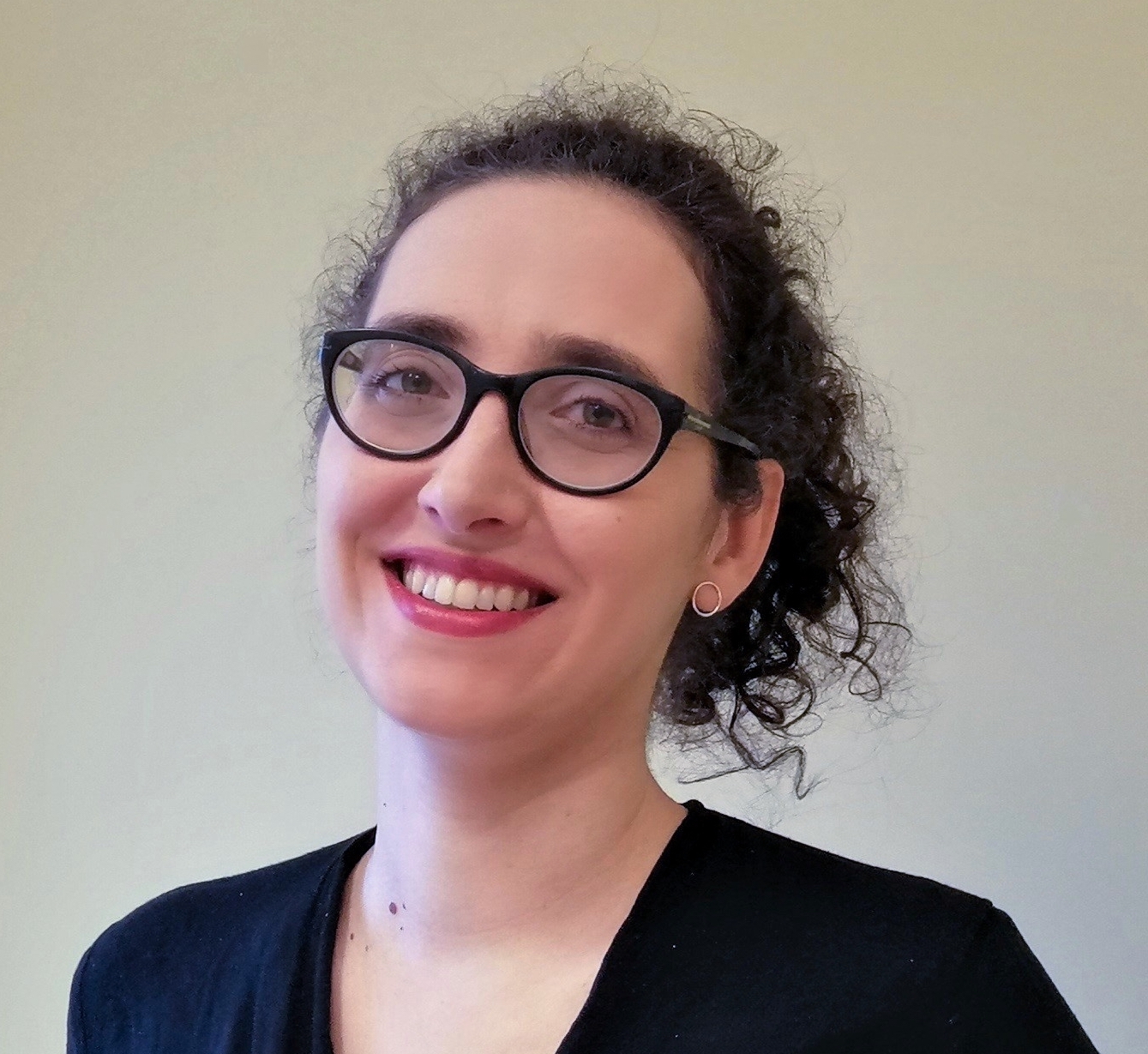 Katarzyna Wolska-Wrona has worked on the European Union decision-making process and protection of fundamental right concerning gender-based violence since 2009. She was a member of the Polish government’s delegation to the Ad Hoc Committee for preventing and combating violence against women and domestic violence (CAHVIO). In 2012–2014, she was the Poland’s legal expert responsible for coordination of the ratification of the Council of Europe Convention on preventing and combating violence against women and domestic violence (the Istanbul Convention). In her career in Polish public administration, she has worked in the Ministry of Justice, Ministry of Foreign Affairs, and the Chancellery of the Prime Minister. From 2018- 2020, she was a Seconded National Expert for the European Institute for Gender Equality (EIGE) in Vilnius, Lithuania, working in the gender-based violence program. She received her LL.M. from CUA in 2005. Her Polish master’s degree in law is from Warsaw University.
Katarzyna Wolska-Wrona has worked on the European Union decision-making process and protection of fundamental right concerning gender-based violence since 2009. She was a member of the Polish government’s delegation to the Ad Hoc Committee for preventing and combating violence against women and domestic violence (CAHVIO). In 2012–2014, she was the Poland’s legal expert responsible for coordination of the ratification of the Council of Europe Convention on preventing and combating violence against women and domestic violence (the Istanbul Convention). In her career in Polish public administration, she has worked in the Ministry of Justice, Ministry of Foreign Affairs, and the Chancellery of the Prime Minister. From 2018- 2020, she was a Seconded National Expert for the European Institute for Gender Equality (EIGE) in Vilnius, Lithuania, working in the gender-based violence program. She received her LL.M. from CUA in 2005. Her Polish master’s degree in law is from Warsaw University.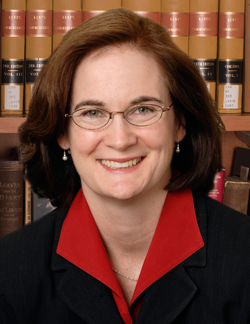 Professor Leary is a national and international expert in criminal law and procedure, victimization, exploitation, human trafficking, missing persons, technology, and Fourth Amendment (search and seizure) law and teaches related courses. She is the lead author of Perspectives on Missing Persons Cases (Carolina Academic Press). She has testified before the Senate and House and currently is Chair of the Victim Advisory Group for the United States Sentencing Commission. Prior to joining the CUA faculty, Professor Leary was a federal and state prosecutor and worked primarily on abuse and exploitation of children and women, child pornography, sex trafficking, and family violence cases.
Professor Leary is a national and international expert in criminal law and procedure, victimization, exploitation, human trafficking, missing persons, technology, and Fourth Amendment (search and seizure) law and teaches related courses. She is the lead author of Perspectives on Missing Persons Cases (Carolina Academic Press). She has testified before the Senate and House and currently is Chair of the Victim Advisory Group for the United States Sentencing Commission. Prior to joining the CUA faculty, Professor Leary was a federal and state prosecutor and worked primarily on abuse and exploitation of children and women, child pornography, sex trafficking, and family violence cases.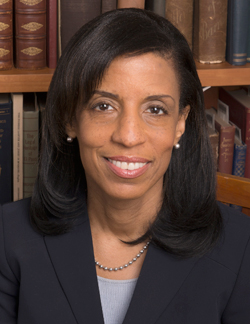 Professor Jefferson is a nationally recognized expert in pension law, employee benefits, and tax law and teaches courses in those areas. In 2015, she was appointed by President Obama to the Pension Benefit Guaranty Corporation’s Advisory Committee and is now serving a second term. She has testified before the U.S. Congress and briefed congressional staff on employee benefits and tax topics. She has served as Dean of the Law School as well as Associate Dean for Academic Affairs.
Professor Jefferson is a nationally recognized expert in pension law, employee benefits, and tax law and teaches courses in those areas. In 2015, she was appointed by President Obama to the Pension Benefit Guaranty Corporation’s Advisory Committee and is now serving a second term. She has testified before the U.S. Congress and briefed congressional staff on employee benefits and tax topics. She has served as Dean of the Law School as well as Associate Dean for Academic Affairs.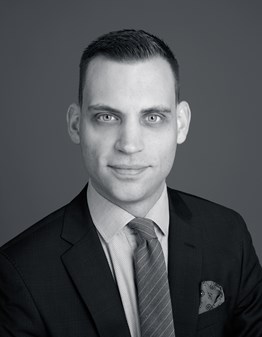 Wictor Furman is a Stockholm-based lawyer specializing primarily in the banking and finance industry and real estate sectors. He is in his own firm after having worked previously at the Magnusson and Harvest law firms in Stockholm as well as for two major Scandinavian banks. His practice includes regulatory and legal matters, dispute resolution, and transactions for clients including fund companies, securities firms, credit institutions, insurance mediators, and real estate investors. He has co-authored articles on financial regulation in the Swedish law journal Ny Juridik. Mr. Furman completed his law degree at the Stockholm University in 2008 and was admitted to the Swedish Bar Association in 2015.
Wictor Furman is a Stockholm-based lawyer specializing primarily in the banking and finance industry and real estate sectors. He is in his own firm after having worked previously at the Magnusson and Harvest law firms in Stockholm as well as for two major Scandinavian banks. His practice includes regulatory and legal matters, dispute resolution, and transactions for clients including fund companies, securities firms, credit institutions, insurance mediators, and real estate investors. He has co-authored articles on financial regulation in the Swedish law journal Ny Juridik. Mr. Furman completed his law degree at the Stockholm University in 2008 and was admitted to the Swedish Bar Association in 2015.